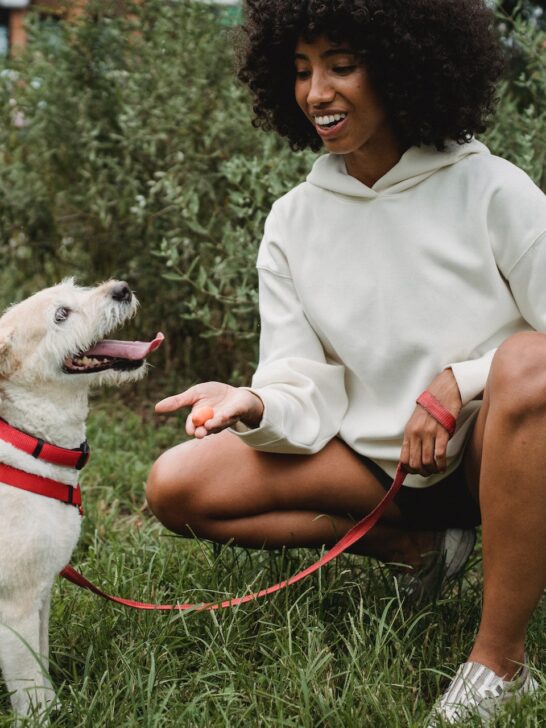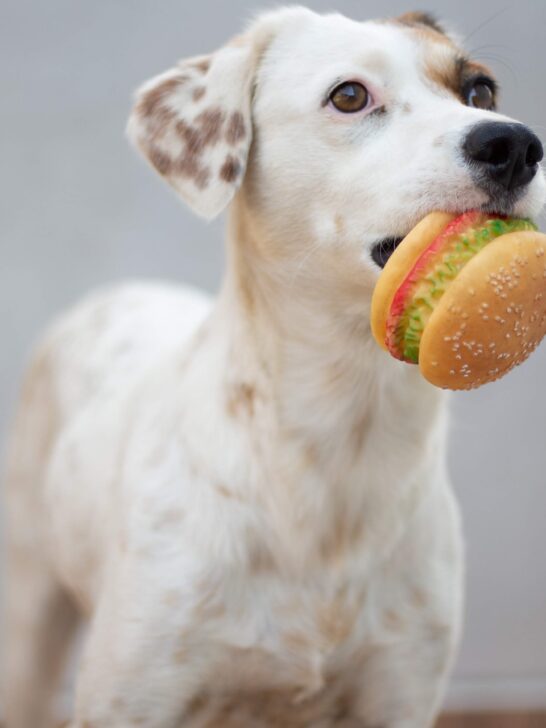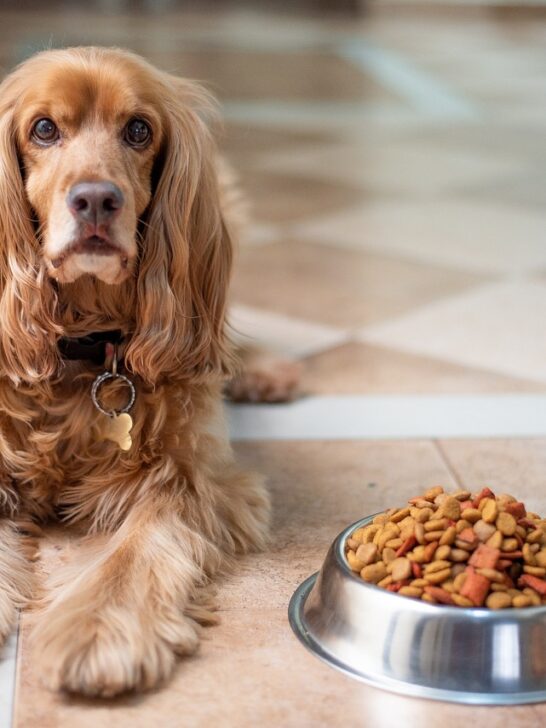Can Dogs Eat Lunch Meat?
Ready-to-eat deli food products like cooked meats might be delicious and highly convenient for a quick snack or a sandwich, but they are far from suitable for your dog.
In the following article, we will talk in detail about lunch meat, the dangers of feeding it to your dog, as well as some safe and healthy food alternatives to lunch meat.
What is Lunch Meat?
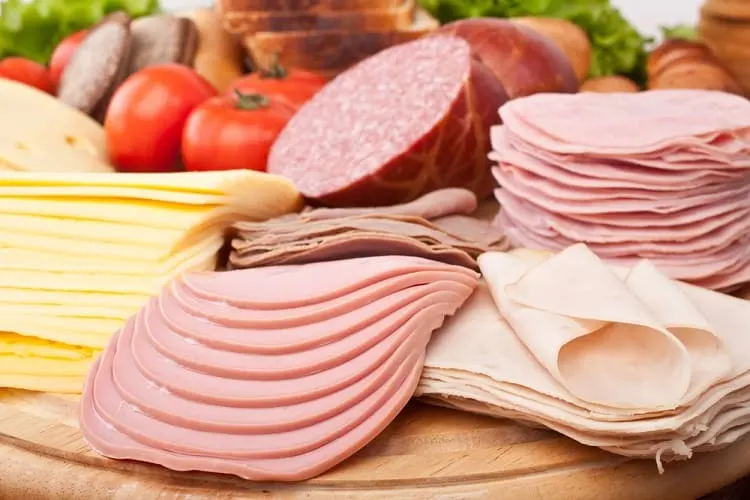
Lunch meat is pre-cooked or processed meat, typically made from pork, beef, turkey, chicken, or lamb. It is usually thinly sliced and is available in most supermarkets.
Common types of lunch meat include salami, prosciutto, pepperoni, mortadella, pastrami, turkey breast, and roast beef.
Two ounces of lunch meat have 70 calories, 2g of fat, 1 g of saturated fat, 679.8 mg sodium, 4 g of carbs, and 3 g of sugar.
Should you Feed Leftover Meat to Your Dog
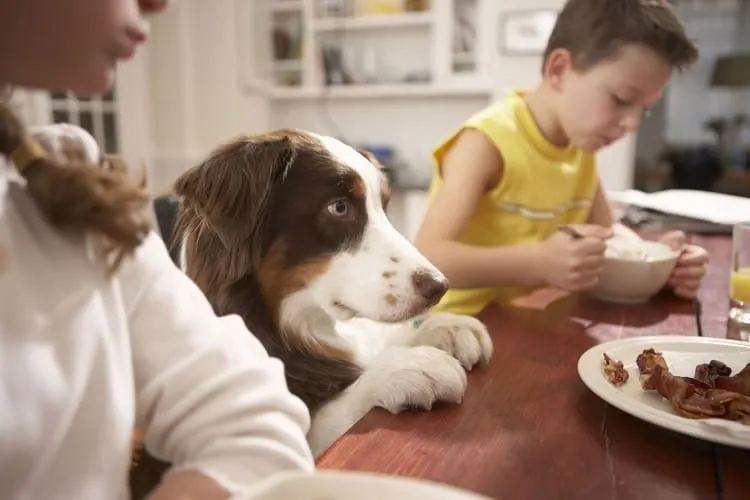
If you’re having a turkey sandwich, for instance, and your dog is looking at you with “puppy eyes,” chances are, you will give it a little slice as well.
What could be the harm in that, you might ask. Well, no harm if it’s just a one (or two) time thing. But if you want to feed your dog with deli meat regularly, it might turn into a big issue.
Lunch meats, slices, deli, salami, or whatever you want to call them can’t provide your dog’s nutrition as they are high in sodium and preservatives.
Most processed meats have been cooked with garlic, onions, or spices harmful to dogs. Fatty meat scraps can also lead to pancreatitis – an inflammation of the pancreas.
Not to mention that most of these lunch meats are classified as carcinogenic by the World Health Organization (WHO).
Lastly, something to think about – lunch meat is not the healthiest option for us humans, let alone our dogs.
How can Meat be Bad for Dogs?
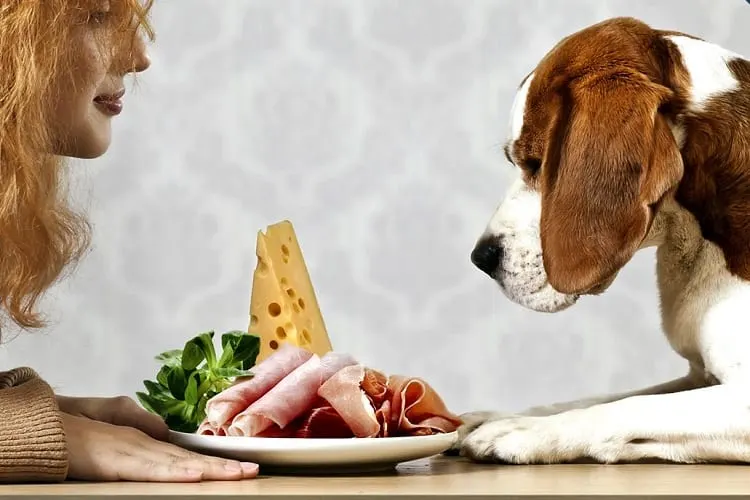
Dog owners have been feeding their pets meat for years, so how can it be bad for them?
Too Much Salt
Salt is added to most meat to extend shelf life and improve the food’s taste. To you, a little bit of salt might be fine, but it’s actually bad for your dog.
A dog’s body is not designed to process salt the way humans do. When dogs eat salty meat, they can end up with an electrolyte imbalance, leading to dehydration and other health problems.
For example, two ounces of sliced turkey has about 700 milligrams of sodium, which is already way too much for your dog.
The daily sodium intake for dogs should be between 0.5 to 1.5mg per 100 grams of dog food.
Additives
Most meat processors use different additives to block the growth of bacteria, prevent spoilage, and add flavor to the food.
Some of the most common additives are salts like sodium nitrate/nitrite, sodium erythorbate, sodium phosphate, and monosodium glutamate (MSG).
For instance, every 100 grams of cured deli meat can contain about 500 mcg of nitrate. While nitrates help preserve meat, too much can lead to cancer.
Another additive added to deli meat is sugar like honey, dextrose, and fructose (fruit sugar). That’s not all, though.
Deli meat also contains growth hormones and antibiotics, which are extremely bad for your dog (and you as well, as a matter of fact).
Spices
Most processed meats contain spices that can easily irritate your dog’s digestive system and cause vomiting or diarrhea.
Additionally, spices can worsen existing health conditions, such as allergies or pancreatitis.
Some spices bad for dogs are onion, garlic, salt, nutmeg, cocoa powder, paprika, pepper, and mace.
Empty Calories
Most processed meats are considered empty-calorie. That means they have minimal nutritional benefits and are usually just saturated and trans fat and added sugar.
Most empty-calorie food also has a high amount of sodium and preservatives. All that results in your dog gaining weight.
A typical turkey sausage, for instance, although delicious, is high in saturated fat due to the high-fat parts of animals that it contains.
Feeding your dog with turkey sausages regularly can cause heart problems, among other things.
Too Much Fat
Lunch meats are high in fat, and too much fat intake causes inflammation of your dog’s pancreas.
If your dog is not reacting very well to lunch meats, you will notice it vomiting or getting diarrhea. That’s a clear sign that you must stop giving it salami or sausages.
Sulfite Content as Preservatives
Deli meats also contain sulfite preservatives that can cause thiamine deficiency (vitamin B1) or death in dogs.
Lack of thiamine may also result in weight loss, upset stomach, or lack of appetite. Symptoms of thiamine deficiency include unequal pupil sizes and neuromuscular weakness.
What to do if my Dog Eats Leftover Meat
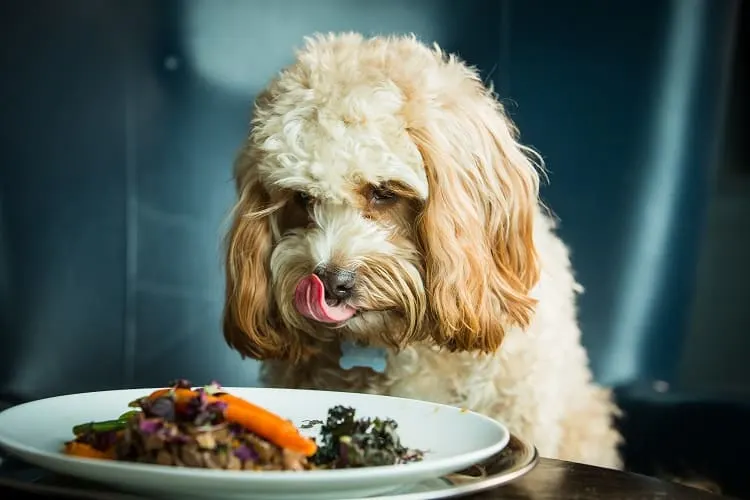
If your dog has eaten leftover meat, you should first try to determine how much it ate. If it only had a small amount, there’s nothing to worry about.
However, if your dog ate a large (or undetermined) amount, take it to the vet as soon as possible. The vet will examine the stomach and immediately let you know what’s the wisest thing to do.
Remember, don’t wait for the symptoms of overeating processed meat (like vomiting or diarrhea) to show before calling the vet.
How to Feed Lunch Meat to Your Dog (Without Worrying About the Health Risks)?
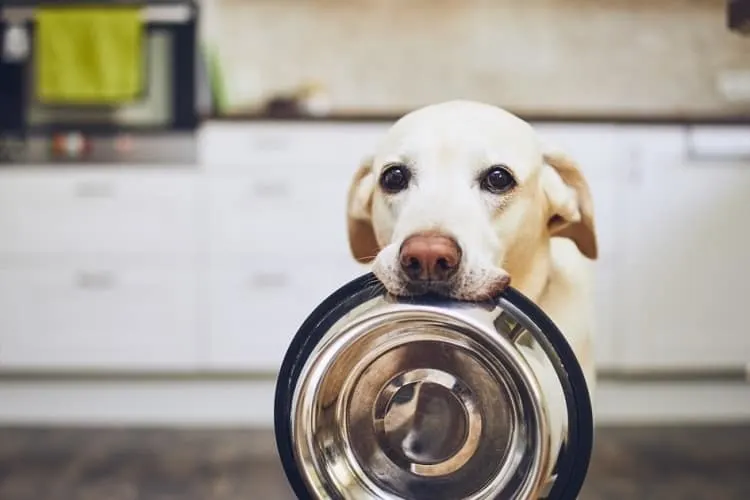
If you want to give lunch meat to your dog, here’s how to do it without worrying about the potential health risks.
- Give Nitrate-free Products: Most supermarkets sell nitrate-free deli meat. They might be a bit expensive, but it’s worth it. Turkey or chicken breasts are some of the most common options. Double-check the label, just in case.
- Choose Sodium-free Food: Roasted chicken, beef, and turkey, for instance, have small amounts of salt, so they won’t cause any harm if you give a slice or two to your dog.
- Buy Unprocessed Meats: Lean and unprocessed proteins like chicken or turkey are generally suitable for dogs. You must slow bake them before feeding them to your furry friend to eliminate nitrate or sodium intake.
Alternatives to Leftover Meat for Your Dog

Below you will find several alternatives to leftover meat you can freely give to your dog.
Cooked Chicken
In case you run out of dog food, cooked chicken is a great alternative. It will provide your furry friend with protein, and they simply love munching on it.
Carrots
Carrots are low in calories and high in beta carotene, Vitamin A, and fiber.
Not to mention that they’re also good for a dog’s teeth. Be mindful of the sizes, though – slices should be small enough to avoid choking.
Oatmeal
If your dog is allergic to wheat, cooked oatmeal is the best alternative. Cooked oatmeal is rich in soluble fiber, which is suitable for dogs with irregular bowel movements.
Just make sure to choose oatmeal that has no sugar and flavor additives.
Salmon
Salmon is rich in omega-3 fatty acids, which keep the dog’s coat shiny and healthy. It also supports your dog’s immune system.
You can add salmon oil to your dog’s food or cook salmon for them – both are good alternatives to processed meat.
Watermelon
Watermelon will keep your dog hydrated as it has high water content. Moreover, it’s rich in vitamins B-6, A, and C, which boost the immune system of your little friend.
Remember to remove the seeds before feeding them to your dogs because those seeds can cause intestine blockage.
Green Beans
Lastly, green beans are also an excellent alternative to processed meats. They are high in vitamin K, protein, iron, and calcium.
Remember that if you choose to give your dog cooked green beans, you mustn’t add any seasoning to the beans.
Other Toxic Foods for Dogs

Several common foods can be toxic to dogs if ingested in large quantities. Those include:
- Chocolate (contains a substance called theobromine, which can be poisonous to dogs)
- Coffee and tea (Caffeine can cause hyperactivity and vomiting)
- Onions and garlic
- Grapes and raisins
- Avocado
- Citrus fruits
- Cinnamon
- Coconut
- Nuts
Conclusion
While lunch meats may be convenient and seemingly harmless, they can actually be quite dangerous for dogs.
Sharing a bite or a slice of your salami sandwich won’t cause a lot of harm to your furry friend. However, if they overeat processed meat, there will be consequences.
Fortunately, there are plenty of healthier options for your pup that won’t do it any harm.
Do your research or ask your veterinarian what’s the best way to ensure your dog will have a healthy relationship with the food you buy for him.
Dogs are, after all, a man’s best friend, and they deserve to get all the delicious (but healthy) treats!
Resources:

















